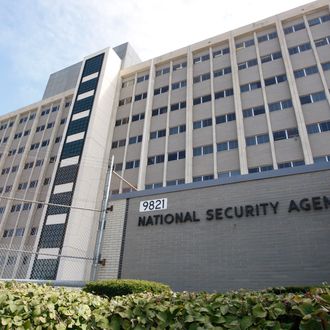
Back in August, it emerged that a handful of NSA employees over the years had used the agency’s phone-listening and e-mail-reading capabilities to spy on their significant others. The practice has a name: loveint (for “love intelligence”). But while we learned at the time that perhaps a dozen or so employees had been caught, we didn’t know what exactly they were doing. That was not good enough for Sen. Chuck Grassley, the Republican from Iowa. He demanded to know more details, and on Thursday he got them in a letter from NSA inspector General George Ellard, published by NBC News. Exactly twelve employees admitted to loveint, and their reasons range from self-protection to old-fashioned snooping.
If that number seems low, that’s not surprising, seeing as how the NSA’s own audit found it broke privacy laws and overstepped its authority thousands of times per year, and employees were trained to not give away too much information about their actions to oversight bodies. But even among the twelve documented cases of loveint, there are some surprises: Very few employees copped to eavesdropping on their lovers out of jealousy, several said they kept tabs on unknown people in order to protect themselves, and one said he simply tried it for practice. Most resigned before they could be disciplined. Synopses of each case can be found in Ellard’s letter, but a few paraphrased examples follow.
- One NSA employee said that “out of curiosity” in 2004, he had used the system on his own phone number and that of his girlfriend, a foreign national. The system blocked him from listening, but “the subject viewed the metadata returned by the query on his girlfriend’s telephone.”
- Another employee said that in 2003 he had listened in on calls of his foreign-national girlfriend for a month, to determine whether she was “involved with any [local] government officials or other activities that might get [him] in trouble.” Similarly, in 2011, an employee said she routinely used the SIGINT system on the phone numbers of people she met at parties, to make sure she wasn’t talking to “shady characters.”
- Surprisingly, only one employee, in 2004, overtly acknowledged using the listening capability to spy on her husband, whom she suspected of cheating. She listened to a foreign number she discovered in his cell phone.
- Perhaps the lamest reason given was from the employee who, on his first day of work in 2005, used the system to read six e-mail addresses belonging to his ex-girlfriend. He said he just wanted to “practice on the system,” and decided to do so on those addresses.





























